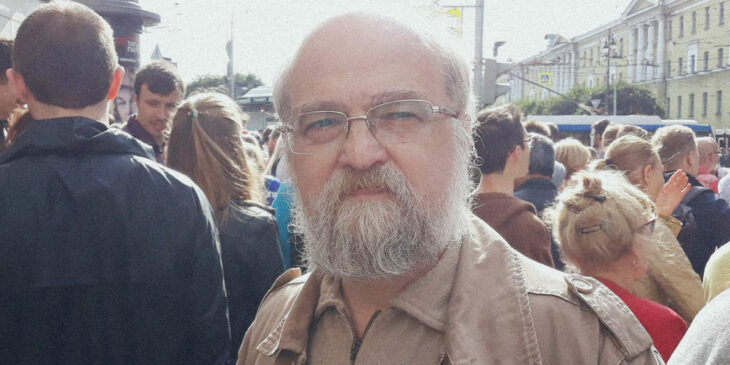
The tradition of celebrating October 30 as Political Prisoner Day was born in 1974 in the Mordovian and Perm political camps, when their dissident prisoners began a hunger strike to protest political repression. Since then, a symbolic one-day protest hunger strike was held in Soviet political zones every year until Gorbachev released political prisoners in 1987.
Today, a group of Russia’s most prominent political prisoners – Alexei Navalny, Vladimir Kara-Murza, Illia Yashin, and Lilia Chanysheva – are also holding a one-day hunger strike. They want to draw public attention to trumped-up cases and conditions in prisons and colonies.
The dissidents’ struggle against the Soviet regime was existential in nature. It was a struggle for the right to speak the truth, the right to have one’s beliefs, one’s identity, one’s human dignity. The Soviet regime denied all these rights. It wrote “laws” which it itself interpreted as a total ban on any expression of dissent. It made great efforts to psychologically break its opponents. To make them surrender, submit, humiliate. To give up their own identity.
Soviet punishers considered it a special success if they managed to force a dissident not only to testify against his comrades, but also to denigrate them publicly, to repent, to publicly recognize the regime’s rightness. Not everyone withstood the pressure of the repressive system. What made the situation particularly tragic was that the dissidents knew that the majority of the country was against them and either welcomed the repression or found excuses for it.
Nevertheless, the dissident community developed its own “code of the politzek”. You have to realize that what you are up against is not people who can prove something, convince you of something. What is against you is a soulless, anti-human machine. The only thing it wants from you is that you let it trample the human being in you. You can’t cooperate with her. You can’t negotiate with her. You can’t compromise with it. You can’t play games with her. “See, it’s a machine. Either you work for it, or it will wipe you out”, said one captured partisan to another captured partisan who decided to play their games with the occupiers in Vasil Bykov’s story “Sotnikov”.
Today, totalitarianism has returned in an even more disgusting form. In the guise of Putin’s obscurantist Nazism. It also denies us the right to dissent. He has written dozens of laws under which any peaceful opposition activity can be imprisoned. And once again we are opposed by the same soulless, anti-human machine, which wants only one thing from us, that we let it trample the human being in us. That we surrender, submit, humiliate ourselves. That we submit to its rules. That we start playing its games according to its rules.
Today I wish the new Russian political prisoners one thing: do not let her do this.




